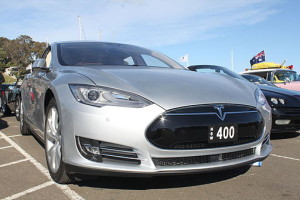 The number of luxury electric vehicles has been increasing over the last few years. There have been reports that Volkswagen’s Porsche and Daimler’s Mercedes will join BMW and Tesla in the segment of luxury electric cars. There are currently three electric car models by Mercedes, joining Unites States-based Tesla in the luxury electric car industry. Tesla achieved immense success with creation of a definitive electric automobile. Additionally, Tesla has been a primary competitor to Audi and Porsche in terms of sales. This has been the case even in nations like Switzerland and Germany, where there is no subsidizing of electric vehicles. Therefore, launching e-tron Quattro and Mission E in 2018 will be attempts by Audi and Porsche respectively, to maintain existing customers via competition with Tesla’s offers.
The number of luxury electric vehicles has been increasing over the last few years. There have been reports that Volkswagen’s Porsche and Daimler’s Mercedes will join BMW and Tesla in the segment of luxury electric cars. There are currently three electric car models by Mercedes, joining Unites States-based Tesla in the luxury electric car industry. Tesla achieved immense success with creation of a definitive electric automobile. Additionally, Tesla has been a primary competitor to Audi and Porsche in terms of sales. This has been the case even in nations like Switzerland and Germany, where there is no subsidizing of electric vehicles. Therefore, launching e-tron Quattro and Mission E in 2018 will be attempts by Audi and Porsche respectively, to maintain existing customers via competition with Tesla’s offers.
Luxury automakers have come to the realization that a superior driving experience is offered by electric vehicles as long as the people’s needs are being met adequately. On full charge, novel luxury electric cars can cover a minimum of 400 kilometers. Industry experts have said that the Model S by Tesla already outsells Audi A8 and Porsche Panamera. It is expected that the model in question will outperform plug-in hybrid cars, implying that some manufacturers may cease producing hybrid electric cars.
This year, Tesla Model S has been the top-selling electric car in Canada, having sold 1,132 cars since January. These sales are almost double those of Chevy Volt and Nissan Leaf combined. On an international basis, Nissan Leaf is the best seller. Immense benefits to Tesla are realized from subsidies. Electric car subsidies in the Unites States have notably aided in driving the newly-launched electric vehicle programs. Battery-only electric vehicles receive a total of $ 7,500 in federal tax credits. This is in addition to a possibility of other subsidies from the state. California, which makes up almost 50% of the national electric car sales, has around $2,500 electric car rebates available. That subsidy increases to $4,000 for low-income customers. The rebate for high-income Californians was eliminated two months ago.
The automakers have always been the major parties benefiting from the subsidies. These automakers are given a minimum number of plug-in hybrid and electric cars that they have to sell. Tax credits will be beneficial in helping the automakers sell electric cars while at the same time cutting the costs of production. Consequently, they can have a competitive advantage over gasoline-fueled cars. The mere fact that the superiority of electric cars is higher than that of gasoline cars implies that without subsidies, the sales will slow down, but not stop.